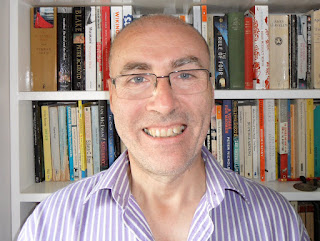Preposterous hokum.
A boys'-own thriller with a typically too-good-to-be-true hero: Cotton Malone, who has starred in at least a dozen other novels, all with three word titles starting with 'The'. He is "fluent in Italian and several other languages, one of the benefits of having an eidetic memory" (Ch 4) He enjoys ostentatious display, renting an Alfa Romeo "since who didn't like driving a 237-horsepowered engine that could go from zero to sixty in four seconds" (Ch 1) and staying at a penthouse suite in one of Rome's finest hotels (Ch 16), presumably on the grounds that no-one would believe that a spy would make himself so visible.
Fortunately, there is another hero, Luke, who is delightfully accident prone and survives scrape after scrape. The utter improbability of this strained my suspension of disbelief to the limit.
There was a lot of action, with different people killing other different people, for reasons I neither understood nor cared about.
The plot was very 'da Vinci code'. Various parties are trying to get their hands on a long lost manuscript which contains a secret which, if revealed, will rock the Roman Catholic church to its core. Of course, once the secret is revealed, there is a sense of 'so what?' The hugely improbable manuscript reveals a secret that most people probably wouldn't even read a newspaper article about, let alone kill or die for.
I also never really understood why the interested parties, all of whom knew a lot more about the manuscript, had to recruit American Intelligence to help them crack a series of really rather silly clues. Especially as one of the clues involved word play which works in English but was in a message written, we are told, in German and, so far as I can find, the word play wouldn't work in German. Looks like a plot flaw to me. Though, tbh, I don't really care.
As for the characters, they were the usual paper-thin thriller types.
The chapters are very short: the first 15 chapters average six pages each.
In much of the text, Berry follows a long paragraph with a very short paragraph, usually a single sentence or sentence fragment, rarely more than a few words long. For example:
The most secret agency within the Holy See had existed since the 16th century, created specifically by Pius V to end the life of the Protestant Elizabeth I and support her cousin, the Catholic Mary, Queen of Scots, for the English throne. Though it failed in that mission, ever since it had served popes through schisms, revolutions, dictators, persecutions, attacks, world wars, even assassination attempts. First called the Supreme Congregation for the Holy Inquisition of Heretical Error, then the much shorter Holy Alliance. In the 20th century it was changed to the Entity.
Its motto?
With the Cross and the Sword.
Frequently, this technique is used to impart information (the author has done a lot of research into the Knights of St John, Mussolini, and the Roman Catholic church) in the long paragraphs and then comment upon that in the ensuing one or two sentence fragments. There is an awful lot of the book written in this style.
Selected quotes:
- "If flying was so safe, why'd they call the airport a terminal?" (Ch 4)
- "War doesn't determine who's right, only who's left." (Ch 5)
- "Husbands are like cars. They're all good the first year." (Ch 8)
- "His main source of exercise was pushing his luck." (Ch 14)
- "The pessimist might be right in the long run, but ... the optimist had a better time along the way." (Ch 19)
I shan't be wasting my time reading anything more by this author.
July 2023; 393 pages

No comments:
Post a Comment